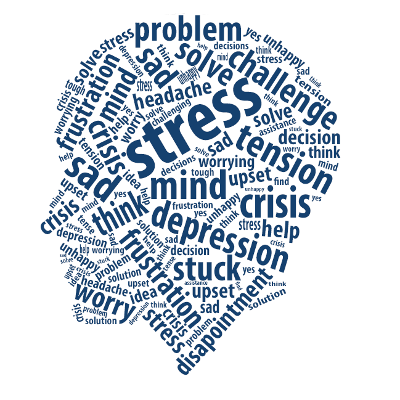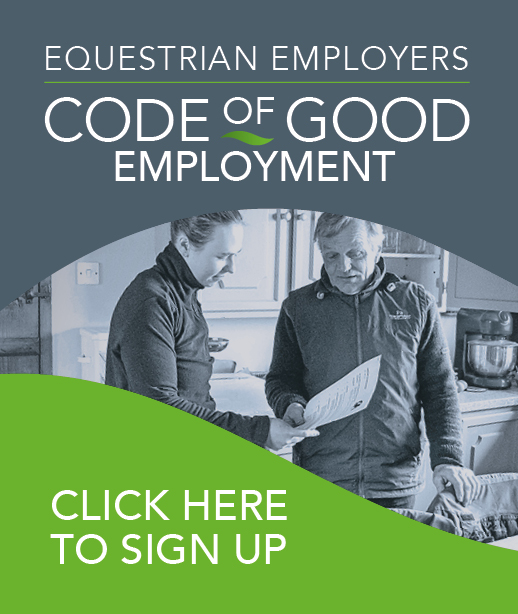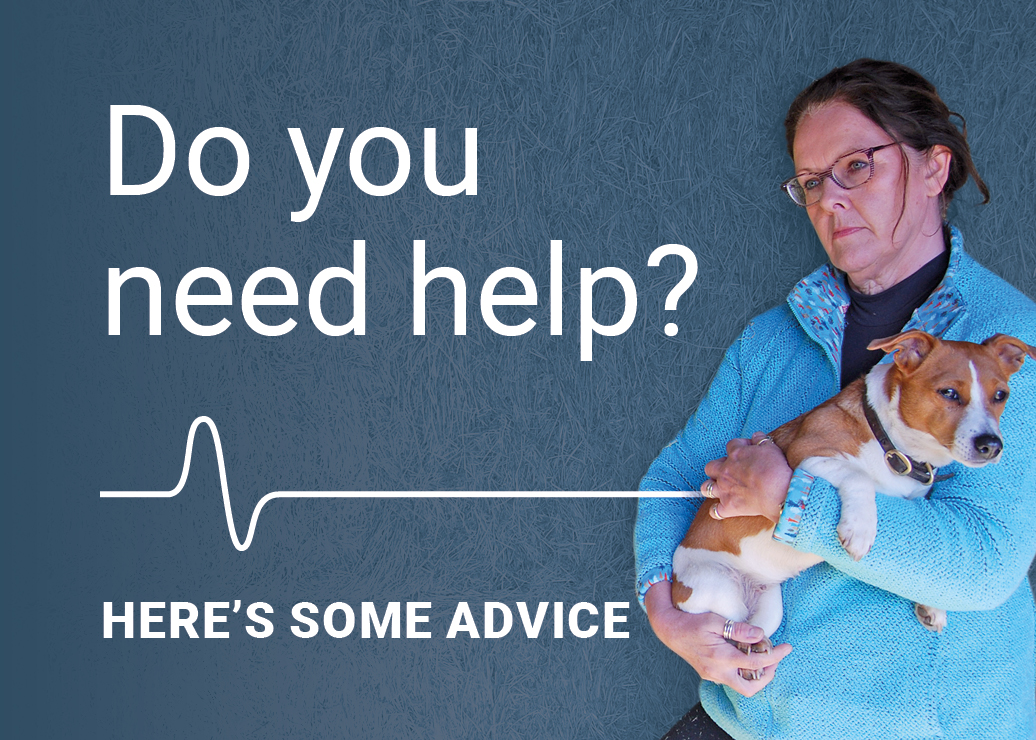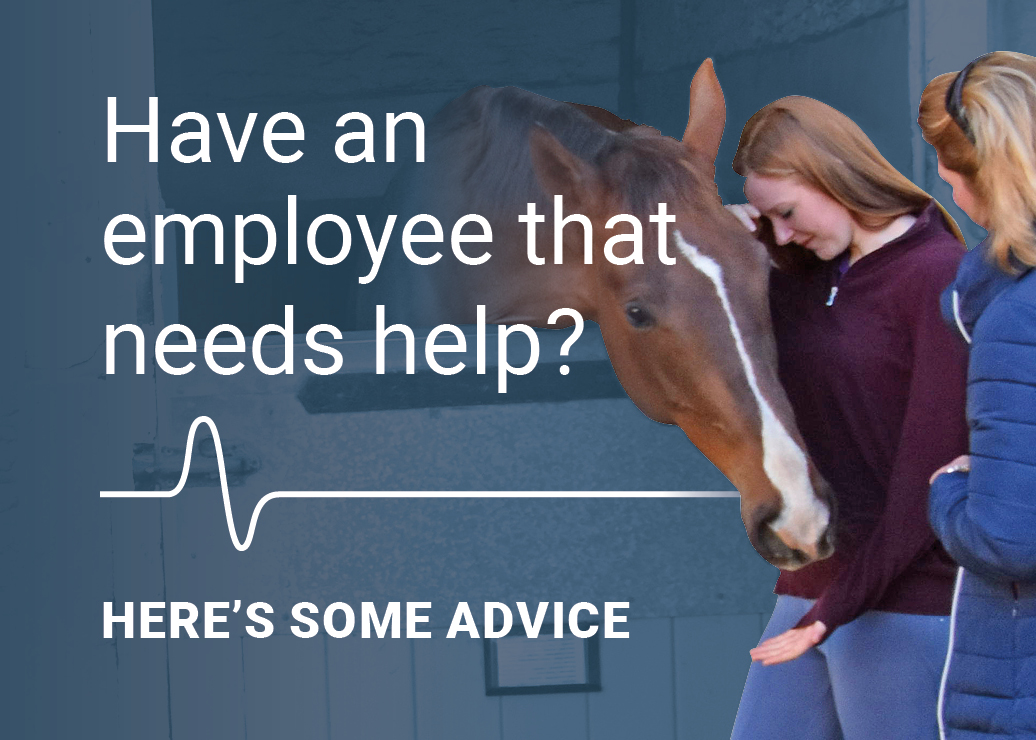- Join Us
- Login
- EEA ToolKit
- Employment Essentials
- Frequently asked
- Contracts and wages
- Time off work & absence
- Staff management & training
- Workplace disputes
- Dismissals and resignations
- Pregnancy and children
- Avoiding discrimination
- Redundancy and Retirement
- Other responsibilities
- Legal Helpline
- Recruitment
- Good Recruitment
- New starters
- Find a groom
- Good Employment
- Resources
- Downloads Library
- EEA Pension & Payroll
- Safe workplace
- Employers Minds
- Transporting horses
- Riding Establishment Licences
- Member discounts
- Business Hub
- Equestrian businesses
- The business plan
- Business compliance
- My clients
- Livery Contract Creator
- Financial matters
- Business challenges
- Marketing
- The EEA
- Employers Life
- Contact

EMPLOYERS MINDS

Employers Minds is your online resource dedicated to supporting the mental health and well-being of equestrian employers.
It’s also there to help EEA members similarly support their employees too.
You are not alone.
Mental Health is a subject which many people are still not keen to, or feel unable to talk about.
With an increasing number of employers contacting the EEA for help, for themselves and how to help their employees, it is clear that this is a real issue.
Being happy, content and confident in the workplace is vital to your well-being and efficient team working. It’s vital to performance, productivity and the success of your business too.
WHY EMPLOYERS MINDS
Mental health and well-being has not previously received much focus in the equestrian sector.
At the Equestrian Employers and British Grooms Associations we often received communications surrounding this important issue.
 |
The first step was to discover how widespread the problem was; a survey was run and the results were worrying reading. |
 |
Phase I, Grooms Minds, launched to widespread industry acclaim on World Mental Health Day 7 October 2018. This is on the British Grooms Association's website and is the go to for all grooms. |
 |
Phase II, creating Employers Minds, delivering a similar resource for equestrian employers, will meet the increasingly high contact levels we’re receiving from employers who either have experienced well being challenges, or have staff that have issues and need guidance on how to handle this correctly. |
Running an equestrian business can be tough, and it is important that we give employers support on how to manage their own well-being, as well as looking out for signs of worry within their staff.
We are determined, through the Grooms Minds and now Employers Minds projects, to raise the awareness of such.
As part of the project we became signatories of the Sport and Recreation Alliance Mental Health Charter.

One employer who has been badly affected by these issues, and who doesn’t wish to be named says, “My depression crept up on me. I didn't feel I could talk to anyone about it because I was angry and disappointed with myself. I hope that Employers Minds will help employers be more alert to the importance of their mental well-being.”
Another employer’s groom took their own life. “We’re all absolutely devastated, shocked and saddened. I’m hoping Employers Minds will help raise employers’ mental well-being awareness, understanding and confidence. We cannot have this happening in our industry.”
IT IS NOT ONLY YOU
The Grooms Minds research project identified that mental well-being challenges in the equestrian workplace is not uncommon.
However, employers are suffering too. Read the story of some EEA members, who share their experiences:
Jennifer - Managing your own well being
A livery yard owner shares her story about the importance of managing yourself if your well-being has been/is being affected by business related matters.

As a teenager I wanted to work with horses but my parents persuaded me that I’d be better to study and get a ‘good’ job so I could get my own horse. I did all that and still kept working part time at the livery yard where I kept my horse.
In 2016 the proprietor of my livery yard passed away and the opportunity to take on the yard came my way. After 30 odd years of wanting to work with horses it was an opportunity not to be missed.
Running the livery yard has been hugely challenging, physically and mentally. The yard now caters for 40 horses and 35 owners and employs 6 members of staff. For me the responsibility that this brings is huge.
If I get something wrong, the health and well being of the horses may be at risk. Similarly for the staff.
As a caring person I would never want to see human or animal suffer in any way. I worry about the implications of any problems, however unavoidable, on the business reputation (largely on word of mouth), financial performance (we couldn’t afford to defend ourselves in a legal case) and ultimately survival. I’m very conscious that people’s job depend on this.
I am fortunate that I have a lot of experience of managing teams and clients from my other non-horsey job. In my other job I have a support network of colleagues and more senior managers for advice or reassurance.
|
At the yard, I’m on my own, no matter how good the staff are the buck stops at me and I have no one to discuss things with. Despite being surrounded by people it’s horribly lonely. It’s worth noting that I still do my non horsey job albeit on reduced hours as my horsey job running the yard does not pay well enough! |
From my late teens and through my adult life I have been prone to bouts depression which means I am able to recognise the signs of a decline in my mental health.
When I took on the business, my physical and mental health were good. Since then both have deteriorated to the extent that I am suffering from fairly severe depression and also now anxiety. Physically I have lost nearly a stone in weight (I was slim to start with so not a good thing!).
Signs all was not well were plenty. Feeling exhausted, drained, short tempered, worthless, unable to sit still and relax, physically sick... I still found it hard to admit I needed help but eventually I went to my GP and through them and NHS Living Life I received great support and I’m currently half way through a CBT course. It doesn’t stop the problem but is helping me deal with things better.
My advice to others?
Join organisations such as EEA. Use their templates and information to get contracts and policy documents in place, that way you are better prepared for difficult situations and it’s one (or many) less things to worry about.
Such organisations offer advice and support with practical matters which is useful but also makes you feel less alone. Look after yourself too.
Mental health support through the NHS is far better now than in the past, visit your GP or phone organisations such as Living Life or Breathingspace. There are also apps that can help, Headspace and Calm are two that I have used.
Daniel's story - I had an employee who was struggling
An employer who had an employee who was struggling with poor mental health and well-being.

I have recently had to terminate the employment of someone who has been off long term with mental health problems. She had worked with us for about 11 months.
Quite early on it became apparent that her mental health was not great. Her responses to situations or occurrences that were fairly innocuous to everyone else were way more exaggerated for her. Reactions ranged from being upset and crying through to panic attacks.
After the first occasion she was quite open about her mental health and from then I made every effort to ensure that she could discuss things with me and to ensure that she was aware that if there were things that I could do to help I would do my best.
Her development on the job was limited. She had difficulty accepting any form of critique, however constructively given. Her response was that everyone was bullying her.
That in turn made staff very wary about working with her and it meant that she could not be trained in tasks that she would have been well capable of performing. She struggled with any form of responsibility. I chose to accept this and took significant steps to ensure she was not asked to do more than she could cope with and I worked with others in the team to help them work with her.
On several occasions she took sick leave but generally this was for a few days at a time and her absences were not sufficiently long or frequent that they were a problem. Until recently! She has now been absent for over 4 weeks due to mental health problems.
During that time I have been nervous about contacting her in case it’s taken as harassing her and I wanted to give her space to receive treatment.
I was nervous I wasn’t contacting her enough and was particularly worried that I wasn’t clear enough in what information I needed from her even though it was clear in her staff handbook and contract.
I was worried that I wasn’t doing enough to help her return to work but was worried that if I tried to do more she would take this as me hassling her to return before she was ready. Her medical certificates weren’t forthcoming and I did get in touch with her to ask for these.
Throughout her absence I had been concerned for her well being but I also had to consider myself and the rest of the team. I didn’t want them knackered from having to cover her share of the work but that simply meant that I picked up her work and had the extra work of trying to find cover for her longer term without having any idea from her if/when she might return.
Thankfully having a contract (created using the Contract Creator) and Staff Handbook in place meant that I could use the information in those to terminate her contract.
Doing that felt slightly like kicking someone when they’re down but I had to think of the others in the team and the business overall. Now that is done I still have the slight concern that she will attempt to claim unfair dismissal and my stress, worry and anxiety about her will continue!
| In this situation I found the EEA invaluable (true story!). All the guidance I needed was there on the EEA website and even with contracts in place, being able to discuss with EEA was hugely reassuring. |
There is a push for greater mental health awareness and I think it is important that we all understand that someone with mental health problems is not ‘making it up’ etc.
At the same time I am all for treating mental and physical health problems equally and that may mean that we don’t tiptoe around the issues.
HOW TO GET HELP
You can check how you are doing with the Mental Health Checker and then look through the numerous sections on the website to discover ways to manage difficult conversations, deal with stress and read some case studies about how you are not on your own.
If you would like to talk to someone, check out the ‘I need help now’ page for details of various helplines.
Alternatively, if you need to discuss an employment matter, then you can contact the EEA directly and we will be pleased to help you.















